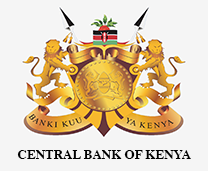Our Mission
Pursuant to the CBK Act, the Central Bank promotes financial stability through regulation, supervision and licensing of financial institutions under its mandate. The Bank also provides oversight of payment, clearing and settlement systems. All these efforts are geared towards fostering liquidity, solvency and proper functioning of the financial system. The Bank also formulates and implements foreign exchange policy and manages foreign exchange reserves. CBK is the banker for, adviser to, and fiscal agent of the Government.
In discharging its mandate, the Central Bank contributes to the country’s economic development and growth, and promotes the interest of the public. The Bank strives to carry out its statutory mandate effectively and efficiently guided by the principles of integrity and transparency.

Establishment
The current Kenya Constitution was promulgated in August 2010. Article 231 (1) of the Constitution provided for the establishment of the Central Bank of Kenya. Sub-section (2) of Article 231 of the Constitution provides for the role of the CBK thus: formulating monetary policy, promoting price stability, issuing currency and performing other functions conferred on it by an Act of Parliament.
The Constitution further provides, under Article 231 (3), that the CBK shall not be under the direction or control of any person or authority in the exercise of its powers or in the performance of its functions. The CBK is, in this case, granted autonomy by the Constitution.
Mandate and Objectives
i. To formulate and implement Monetary Policy directed to achieving and maintaining stability in the general level of prices.
ii. To foster the liquidity, solvency and proper functioning of a stable market-based financial system.
iii. To support the economic policy of the Government including its objectives for growth and employment.
Without prejudice to the generality of the above, other objects of the Bank are:
i. To formulate and implement foreign exchange policy.
ii. To hold and manage foreign exchange reserves.
iii. To license and supervise authorized dealers.
iv. To formulate and implement such policies as best promote the establishment, regulation and supervision of efficient and effective payment, clearing and settlement systems.
v. To act as banker and adviser to, and as fiscal agent of the Government.
vi. To issue currency notes and coins.
- Monetary Policy The Central Bank collects and analyses economic and financial data and undertakes research in micro- and macro-economic activities to inform the formulation of monetary policy geared towards achieving and maintaining stability in the general level of prices.
- Financial Markets To implement monetary policy decisions, the Central Bank employs financial tools at its disposal to foster liquidity in the financial market and manage growth of credit in the economy. The Bank manages the country’s foreign exchange reserves and intervenes to mitigate unforeseen disruptions in order to ensure stability in the foreign exchange market. Further, the Bank discharges its agency role to the National Treasury as it manages the Government’s domestic borrowing.
- Bank Supervision The Central Bank provides legal and regulatory framework and issues prudential guidelines to govern the operations of financial institutions under its mandate. It also licenses and undertakes surveillance of the financial institutions to ensure compliance with laws and regulations.
- Payment and Settlement Systems Safe and efficient payment and settlement systems is a key component of an effective and efficient financial sector. The Bank formulates and implements such policies as best promote the establishment, regulation and supervision of efficient and effective payment, clearing and settlement systems that promotes social and economic activities.
- Banking Services The Central Bank provides banking services to government ministries, departments and agencies, semi-autonomous government institutions and county governments.
- Currency Services The Central Bank is responsible for the design, production and distribution of the Kenya currency. The Bank ensures that there is adequate supply of clean currency to support social-economic activities.
Vision, Mission and Values
Vision
The Vision of the Bank is “To be a World Class Modern Central Bank.”
Mission
To formulate and implement monetary policy for price stability, foster a stable market-based financial system and ensure a sound national payment system.
Core Values
Core values are beliefs that staff hold in common and endeavour to put in practice. The CBK Board and staff embrace the following core values in delivery of its mandate:
- Professionalism: The Board, Management and staff will diligently offer quality services to all stakeholders while observing high professional standards and respecting all relevant rules and regulations.
- Integrity: The Board, Management and staff will always act with integrity while discharging the Bank’s mandate. We will remain transparent and accountable in all our operations.
- Innovativeness: The Board, Management and staff will nurture creativity and continued improvement in the processes of the Bank, leading to enhanced organizational performance, stakeholder interaction and customer experience.
- Diversity and Inclusiveness: The Board, Management and staff shall treat all people equally and fairly without discrimination and shall uphold the principles of gender equity, regional and ethnic balance. In the diversity of roles and professions in the Bank, we shall work as one team to deliver the Bank’s mandate in the most efficient and effective way.

Head Office, Branches and Centres
The Central Bank’s headquarters are located in Nairobi. The Bank has branches in Mombasa, Kisumu and Eldoret, as well as centres in Nyeri, Nakuru, Meru and Kisii. Branches and centres ensure closer service to the public.
